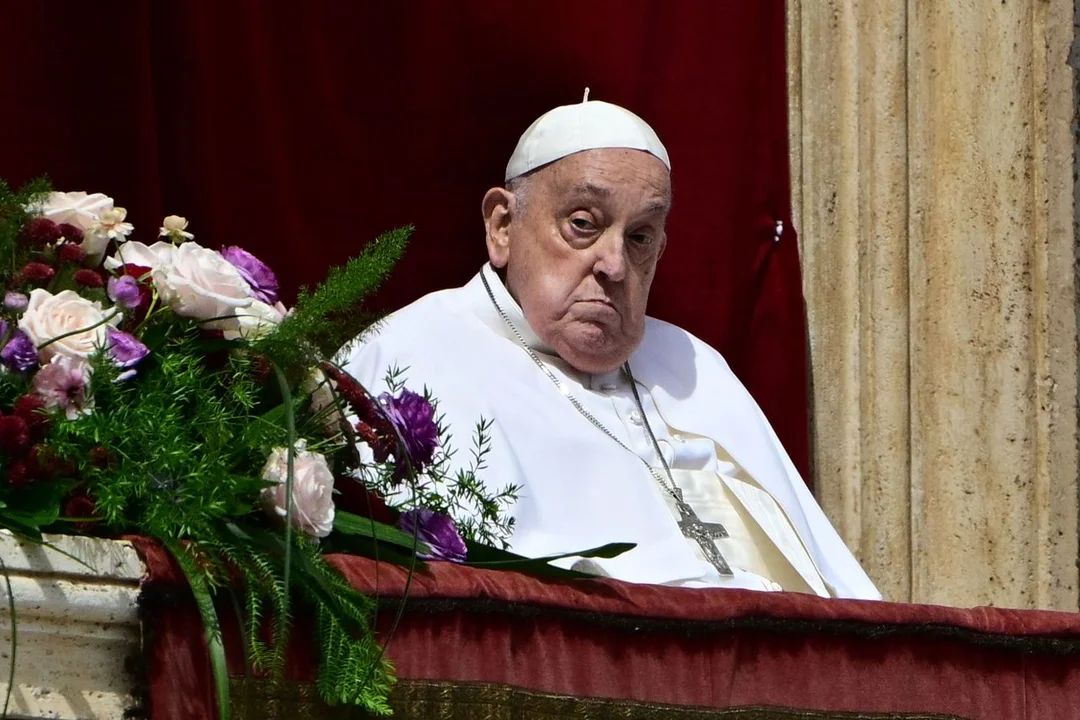
What Now for the Catholic Church? A Closer Look at Pope Francis’ Legacy
Pope Francis, the first Jesuit pope and the leader of 1.3 billion Catholics worldwide, passed away on Easter Monday, April 21, 2025, at the age of 88. His death marks a significant moment in the history of the Catholic Church, prompting reflections on his impact and the future of the papacy.
At 9:45 AM, Cardinal Kevin Farrell, Camerlengo of the Holy Roman Church, broke the heartbreaking news from the Vatican's Casa Santa Marta. "Dearest brothers and sisters, with deep sorrow I must announce the death of our Holy Father Francis. At 7:35 this morning, the Bishop of Rome, Francis, returned to the house of the Father," he stated. His words encapsulated a life dedicated to serving the marginalized and spreading the values of the Gospel with compassion and courage.
Pope Francis was hospitalized for treatment of bronchitis, which developed into bilateral pneumonia in February 2025. His health had been a concern for some time; he had previously undergone lung surgery in Argentina during his youth and had faced repeated respiratory issues in his later years. Notably, he canceled a planned visit to the United Arab Emirates in November 2023 due to influenza and lung inflammation.
In the days leading up to his passing, concerns about his health were prevalent among the faithful, with many praying for his recovery. Following the announcement of his death, the Vatican has made arrangements for his body to be moved to St. Peter's Basilica for public veneration starting April 23, 2025, allowing the multitude of believers to pay their last respects.
The late Pope leaves behind a mixed legacy characterized by a push towards inclusivity and reformation within the Church, as well as controversies regarding doctrinal approaches and social issues. He championed the cause of the poor and fostered dialogues on climate change, LGBTQ+ rights, and interfaith relations, broadening the Church's outreach.
Archbishop Diego Ravelli, in describing the updated funeral rites the Pope had approved, emphasized the simplicity and doctrinal focus desired by Francis. "The renewed rite seeks to emphasize even more that the funeral of the Roman Pontiff is that of a pastor and disciple of Christ and not of a powerful person of this world." This highlights the Pope's desire to reshape the perception of the papacy away from authority towards humility.
As the Vatican prepares for the upcoming conclave to elect a new pope, the question on many minds is: What direction will the Catholic Church take next? The legacy of Pope Francis and his vision for a more compassionate Church will undoubtedly influence the deliberations of the cardinals. Will they continue his progressive path, or will they revert to more traditional, conservative values?
This moment is a pivotal juncture for the Catholic faith, and analysis of Pope Francis' impact will continue to resonate as discussions about his successor ensue. How do you feel about Pope Francis' legacy? Share your thoughts in the comments below.
Related issues news
Where was Pope Francis born?
Pope Francis was born as Jorge Mario Bergoglio on 17 December 1936 in Flores, a neighborhood of Buenos Aires. He was the eldest of five children from Mario Josu00e9 Bergoglio and Regina Maru00eda Su00edvori. Mario Bergoglio was an Italian immigrant accountant.
Why did the pope die?
Pope Francis died Monday at the age of 88, the Vatican said. He died almost a month after he was released from a Rome hospital where he was treated for five weeks for a respiratory infection that worsened into pneumonia.
What happens after Pope Francis?
About 15-20 days after the pope's death, cardinals under the age of 80 convene at the Sistine Chapel in Vatican City, which is sealed off, to elect the new pontiff through a secret ballot. Voting takes place in up to four rounds a day until a candidate wins two-thirds of the vote.
When did the pope Francis become pope?
March 13, 2013: Elected 266th pope, the first from the Americas, the first Jesuit and the first to take the name of Francis, after St. Francis of Assisi. April 13, 2013: Creates a kitchen cabinet of eight cardinals from around the globe to help him govern the church and reorganize its bureaucracy.